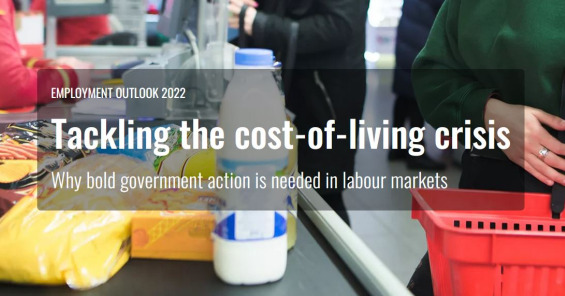OECD: collective bargaining the solution to the cost of living crisis
28.09.22

A new high profile intergovernmental publication advises governments to tackle the cost-of-living crisis by reinforcing collective bargaining.
The OECD Employment Outlook 2022 confirms that workers’ wages are not keeping up with the hike in costs. This means that working people can buy less with their income. According to the report, real wages are declining in most OECD countries, at an average of over 2%.
The report, subtitled Building Back More Inclusive Labour Markets, also shows that lower-paid groups are being hit harder by the price increases. The OECD advises governments to take urgent measures. The intergovernmental organisations places particular emphasis on strengthening collective bargaining. Additionally, OECD calls for supporting low-income groups and taking employment measures for vulnerable groups.
In the words of the OECD:
“Strengthening collective bargaining is key to ensuring a fair distribution of the inflation shock between workers and employers. In the longer term, a stronger voice for workers and more robust competition between employers would ensure a re-balancing of bargaining power.”
The findings align with UNI Europa’s own research on the link between strong collective bargaining and less income inequality. With the recent adoption of the directive on minimum wages and collective bargaining, the European Union has adopted a similar view. The evidence and advice is clear, it is now up to national governments to take decisive action and strengthen collective bargaining.
Read the OECD Employment Outlook 2022.
You may also be interested in
Meetings & Events
2025
11
Mar
18
Mar
29
Apr
Protected: UNI Europa FATIMA Project – ICTS Workshop – Leuven – 29 April 2025
ICT & Related Services
Dear Colleagues,
We would like to invite you to the sector workshop for ICTS in the framework of the UNI Europa project on “Fair Working Time Matters” (FATIMA). The event will take place on 29 April 2025 in Leuven, Belgium. The meeting will start at 09:00 CEST and end at 16:30 CEST.

